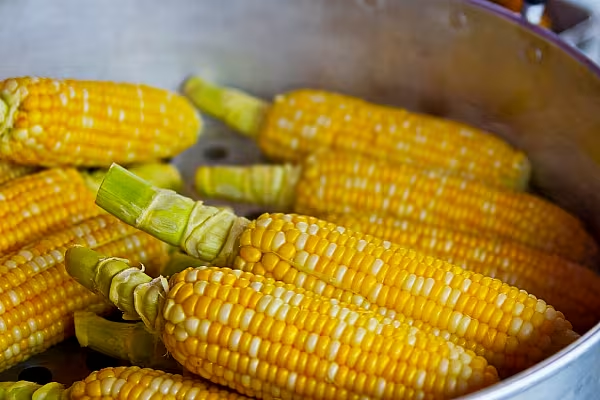Ukrainian grain traders said they saw no grounds to restrict corn exports for the 2020/21 season, a move requested by animal feed and meat producers to avoid higher feed prices.
Ukraine's economy ministry and agricultural unions will decide on 25 January whether to limit corn exports for the 2020/21 marketing season to 22 million tonnes.
Domestic livestock and poultry producers' associations last week asked the government to limit corn exports to that level to avoid a shortage of animal feed.
'A Sectoral Agreement'
"The proposal has been made, but it is not yet clear whether it will be accepted .... This is not a restriction, but a sectoral agreement," deputy economy minister Taras Vysotskiy told Reuters.
But one foreign trader, speaking on condition of anonymity, was worried export restrictions could potentially create "additional turbulence in the market, exacerbated by decisions on export duties from Russia."
Russia, one of the world's largest wheat exporters, plans to impose a higher export tax on wheat from 1 March seeking to curb a rise in domestic food prices triggered by the COVID-19 crisis.
No Grounds For Limits
'Today there are still more than 21 million tonnes of corn of the new harvest in the country (Ukraine) and it is inexpedient to talk about any deficit, as it is also inexpedient to determine the maximum volume of exports,' traders union UGA said.
It noted Ukraine had already passed the peak of corn exports and the rate of shipments would decline.
The country had exported 10.5 million tonnes of corn as of 18 January, 3.5 million less than at the same date in 2019, the union said.
Ukraine's corn harvest fell to around 29.3 million tonnes in 2020 from 35.9 million a year earlier and producers fear large-scale exports could sharply reduce stocks and raise prices.
The ministry said Ukraine needed around 7.5 million tonnes of corn to cover local needs.
In November, Ukrainian pig and poultry growers failed to convince the government to set a maximum volume of corn available for export in the 2020/21 season due to a sharp jump in fodder costs.














